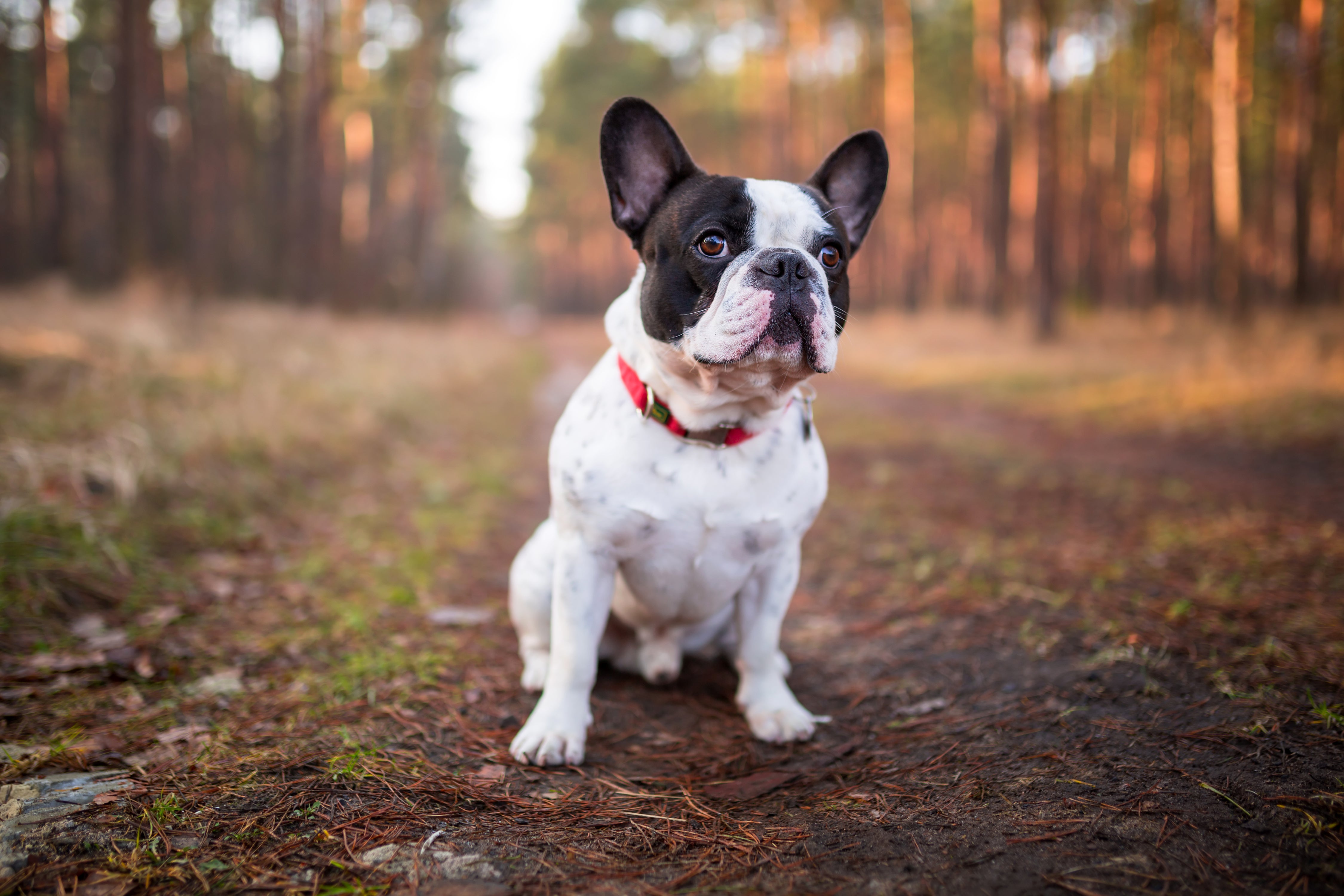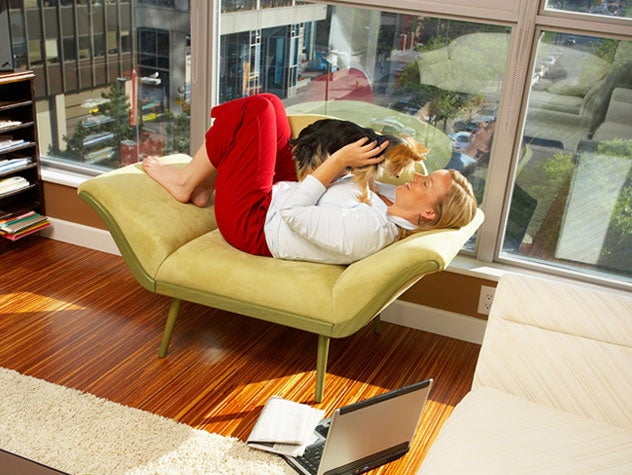French Bulldog
French Bulldogs are compact little comedians, physically defined by their low center of gravity, wide body, muscular build, and large, square head with soft loose skin forming wrinkles about the head and shoulders. Frenchies are wiggly, fun, and enthusiastic lap dogs who love to entertain at home. Alert and curious, their distinctive bat ears make them seem even more so.
Breed characteristics carousel
Learn More
Need to Know
- Dog suitable for non-experienced owners
- Basic training required
- Need to be aware of potential health issues
- Enjoys gentle walks
- Small dog
- Some drool
- Requires frequent grooming
- Quiet dog
- Barks and alerts to visitors/anything unusual
- Generally friendly with other dogs
- Gets along with other pets with training
- May need additional supervision to live with children
- Needs a small yard or can happily live in the city
- Can be left alone with training
- AKC Registered Breed

Personality
Clowning around comes naturally to the French Bulldog, who enjoys playing and enchanting their families. They make excellent cuddle buddies and are very happy simply snoozing next to their favorite person. Amiable, sweet, companionable, and willing to please, they make excellent companion dogs.
The Bulldog was fairly popular in England in the 19th century, especially around Nottingham. When many of the lace workers of the region went to France for work in the mid-1800s, they took their “toy” bulldogs with them. French women were particularly enchanted by the small Bulldogs, especially those with erect, bat-like ears, something the British found to be unattractive. The dogs made their way to France where they soon became a la mode, as the French would say.
In America in 1898, there was a dog show solely for French Bulldogs, one of the most elegant dog shows ever held. The gracious and glamorous event attracted the wealthy, who fell in love with the goofy, charismatic dogs.
French Bulldogs do well with family life and are particularly good with young children. They are playful and make good watchdogs.
A short walk or outdoor play session with their owner each day should provide enough exercise to keep the French Bulldog in shape. Frenchies enjoy participating in canine sports such as obedience, agility, and rally.
The French Bulldog breed doesn’t need a lot of space and does well in urban environments so long as they have access to the outdoors for potty time and exercise. These mischievous goofballs are happy to curl up at their owner’s feet most of the day. French Bulldogs make a lot of noise like grunting, snoring loudly, or wheezing, so sharing a small space with one can be grating if you have a low tolerance for such sounds.
Attention-seeking Frenchie dogs are relatively low-maintenance when it comes to grooming. They have a short, easy-to-maintain coat that doesn’t shed much.
Socialization benefits Frenchies. Expose them to a wide variety of people, places, and situations as soon as possible so they are well-adjusted. Their big personalities need a fair amount of training to ensure they are successful in situations. They can be stubborn, but at heart, they are people pleasers and are eager to perform well. Highly motivated by food, French Bulldogs train easily when it’s made into a game.
French Bulldogs are very affectionate with their families and get along well with other animals if socialized properly. They will love nothing more than cuddling up next to you.
The cost of a French Bulldog from a breeder is significantly more than the cost of adopting one from a local shelter or rescue. The adoption fee usually covers additional items such as spaying or neutering, vaccines, and microchipping.

Learn more about feeding and caring for your French Bulldog on Purina.
Did you know?
- There was a dog show just for French Bulldogs in America in 1898, which kicked off the breed’s popularity.
- Frenchies are a popular breed among celebrities, including Hugh Jackman, David Beckham, and Reese Witherspoon.
- French Bulldogs can blow bubbles with their jowls when playing.


